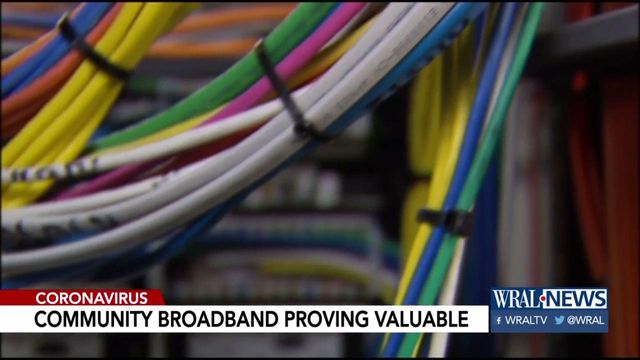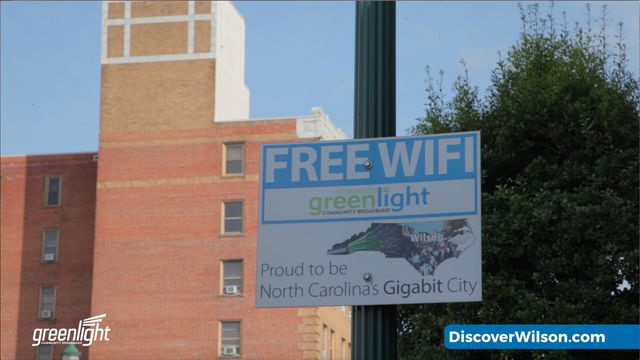Wilson community broadband proves valuable during coronavirus outbreak
Michelle Galloway is a veteran history teacher at Fike High School. She knows all the tricks after more than 30 years in the classroom. But nothing ever prepared her for teaching classes online.
Posted — Updated"It was the most frustrating experience I've ever had teaching," Galloway said.
And this wasn't because she is uncomfortable with technology. She just didn't have reliable internet service at her Wilson County home.
"I was hearing about 1/3 of what my students were saying and I would have to ask a student to repeat themselves three, sometimes four times," she said.
That's when Wilson's community broadband stepped in to help. Greenlight laid more than 3,000 feet of fiber optic cable to connect Galloway with her students. She's now teaching her classes with ease.
"This case study has really proven the point again anecdotally by all of these people needing to get access to the network and also in the data we are now seeing," said Will Aycock, Greenlight's General Manager.
Greenlight is the state's only community-owned internet service and it's seen its share of push back from traditional internet providers over the years.
During the coronavirus outbreak, its hometown flexibility is proving invaluable to people like Galloway.
"We are trying to get to the people with the greatest need as quickly as we can because the needs are coming out of the woodwork right now," Aycock said.
Greenlight has added 150 new customers since the outbreak started and they've seen outbound traffic skyrocket. Between February and April, outbound traffic increased by 23 percent in the 9 o'clock hour and 44 percent at noon. This is likely due to the rise of online conference calls.
"The ability to absorb that increase in upload really goes to the value of next generation broadband," Aycock said.
City leaders are hoping this helps to prove a point they've been trying to make since they started the project. High-speed internet is no longer a luxury.
Related Topics
• Credits
Copyright 2024 by Capitol Broadcasting Company. All rights reserved. This material may not be published, broadcast, rewritten or redistributed.






